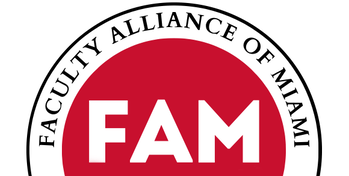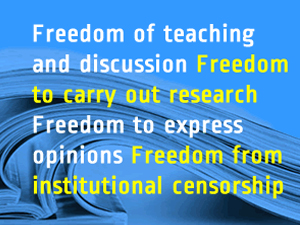Overheard at Miami:
“Academic freedom? Sometimes I think that’s just a way of protecting incompetent teachers.” — Professor X.
Most of us at Miami agree with you on wanting to keep classroom standards high at Miami, Professor X! But when we say we value academic freedom, are we really somehow getting into the business of supporting or promoting bad teaching? Certainly not.
Here’s how academic freedom really works: It allows students and faculty to engage in debate and knowledge-production without fear of censorship or retaliation. Academic freedom is essential to a thriving intellectual culture — not just at universities, but in the larger society that’s informed by knowledge generated and shared by universities.
Here’s what academic freedom is not: an excuse for faculty incompetence or bad behavior. A good faculty handbook should clearly state what counts as dismissal for cause — incompetence, bad behavior, a range of other possibilities — while also clearly stating that academic freedom is a value of the institution and that instructors’ and researchers’ rights to it are protected.
For more on what academic freedom is and isn’t, check out Cary Nelson’s post “Defining Academic Freedom” on Inside Higher Ed.
Do all faculty at Miami have academic freedom? Not by any stretch. See here.


Leave a Reply